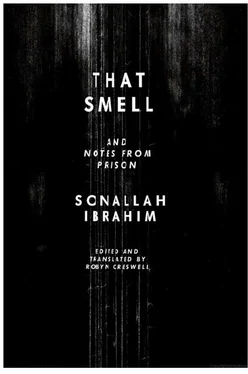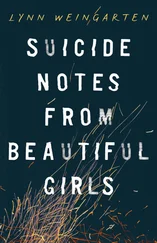Sonallah Ibrahim - That Smell and Notes From Prison
Здесь есть возможность читать онлайн «Sonallah Ibrahim - That Smell and Notes From Prison» весь текст электронной книги совершенно бесплатно (целиком полную версию без сокращений). В некоторых случаях можно слушать аудио, скачать через торрент в формате fb2 и присутствует краткое содержание. Год выпуска: 2013, Издательство: New Directions, Жанр: Современная проза, на английском языке. Описание произведения, (предисловие) а так же отзывы посетителей доступны на портале библиотеки ЛибКат.
- Название:That Smell and Notes From Prison
- Автор:
- Издательство:New Directions
- Жанр:
- Год:2013
- ISBN:нет данных
- Рейтинг книги:4 / 5. Голосов: 1
-
Избранное:Добавить в избранное
- Отзывы:
-
Ваша оценка:
- 80
- 1
- 2
- 3
- 4
- 5
That Smell and Notes From Prison: краткое содержание, описание и аннотация
Предлагаем к чтению аннотацию, описание, краткое содержание или предисловие (зависит от того, что написал сам автор книги «That Smell and Notes From Prison»). Если вы не нашли необходимую информацию о книге — напишите в комментариях, мы постараемся отыскать её.
Notes from Prison
That Smell and Notes From Prison — читать онлайн бесплатно полную книгу (весь текст) целиком
Ниже представлен текст книги, разбитый по страницам. Система сохранения места последней прочитанной страницы, позволяет с удобством читать онлайн бесплатно книгу «That Smell and Notes From Prison», без необходимости каждый раз заново искать на чём Вы остановились. Поставьте закладку, и сможете в любой момент перейти на страницу, на которой закончили чтение.
Интервал:
Закладка:
Of course I did. It was wintertime, after lunch. My father sat in the north-facing room with my aunt, looking out at the palace through the veranda’s window. I went to him, wanting to sit on his lap, but he turned me away. He said I wasn’t a little boy anymore. I turned back to the living room and walked through it to my cousin’s room. She sat at the sewing machine and I watched as she worked the machine with her foot. Look at this, she said, the string broke at the first stitch. There’s a devil in this machine. She bent over the machine after a glance in my direction. I turned toward the window, ears burning. I could see her white face with red cheeks even as I looked toward the closed window. It was only the glass that was closed. Beyond it was the sky. Brilliant rays of sun shone through the glass and lit up the mouth of the well in the garden below. Soon the servant boys would come and I’d go down with them to pump the water. We would steal a few flowers and shake the mango tree to no purpose, then run through the bedrooms and the cellar. This time I would hide from them in a room that was tucked away and only used during Ramadan, when the sheikhs recited there at night. When we left that evening my aunt would say goodbye at the door and turn on the light for the stairs. We would walk down the broad white steps and over the colored paving stones, open the garden’s squeaky gate and go out into the wide and noiseless street. I would pick jasmine from the walls of the gardens. My cousin’s friend said something. She was standing just in front of the wardrobe’s mirror, putting on lipstick. I wasn’t looking at her. She was tall with green eyes. She’d only said one thing to me. When she came into the room she said, Hey. Then she turned to my cousin. But my cousin was talking to me when she said, Look at this. The little wardrobe was behind me. Each of its wooden panels was fixed with a bright mirror. A small brass chime hung from the middle keyhole, so that whenever the wardrobe was opened it made a pretty ringing sound. Inside the wardrobe were closed drawers with my cousin’s things arranged in rows. I was happy because the wardrobe was closed. Without taking my eyes from the window, I could watch my cousin’s fingers lightly touching the machine’s handle, making the wheel spin noisily. She bent down, following the fabric as it moved beneath the needle. Her two braids fell over her chest. Her friend said to her, Will you ever finish? We’re late. My cousin lifted her head and our gazes met and then she looked at her friend and said, This is the last part. I blinked and heard the ring of the small brass chime.
My sister came in and said, The city sewers are overflowing. Then an old relative of my cousin came in, panting. He could hardly see from behind his thick glasses. My cousin’s face darkened. The old man said, Give me a shilling after I have some coffee. He took off his tarboosh and placed it beside him on the sofa and drank his coffee and then just sat there. My cousin went into her room and came back and asked if I had any change on me. I didn’t have any change. They sent the cook to get two shillings for ten piastres. We sat and waited for him to come back without speaking. Then my cousin gave the old man his shilling and he got up and put his hat back on and said goodbye and left. My cousin said, He’s a crafty old man. He only wheezes like that when he comes to see us. My sister said that he lived with his married son and that the son’s wife encouraged her children to rip his clothes and hide his shoes and make a mess in his room. My cousin said, He’ll drink up the shilling. My sister said, When he visits his daughter she leaves him in the living room and shuts her bedroom door on him. My cousin said, He’ll spend the day drinking and begging from all his relatives.
Many years ago in that same room, my aunt sat in her white veil on the sofa, smoking, and next to her my father was still panting from the stairs and the heat. He used a handkerchief to wipe his bald head, fringed with white hairs. The cook came in and my aunt took out her purse and gave him a guinea and the cook left. My father said something and she shook her head. My father got up and walked toward the north-facing room out onto the veranda and lit his black cigarette and leaned his elbows on the veranda’s ledge and smoked.
My sister said that Nihad was engaged to a director in the public sector. She told my cousin about the relative of Nihad who’d asked me if I was the son of the man with the pointed mustache and we laughed and my sister said Nihad’s grandmother was sick and that her family couldn’t stand her. Before my mother died she went months without leaving her bed and she would pee in it, my cousin said. And my sister said that the wife of another cousin had had a miscarriage in her sixth month. Lucky her, I said. My sister got mad at me and told me I had no feelings. She said I was the only one who wouldn’t be able to come to her wedding because it would be after sunset. And she said that her friend Husniyya would get married a week after her and then Husniyya’s uncle would go back home. And she said that Husniyya’s uncle had lived with Husniyya since he left his wife. And she said that his wife never took off her mourning clothes, that according to him even her underclothes were black. My cousin’s dog approached me, wagging his head. I put my hand down to pet him and he immediately went to sleep on his back and peed all over the floor. They said that was how he was these days, as soon as he slept on his back, he peed. I went home and undressed and prepared a cup of tea and sat down and read a book about Van Gogh. I must have dozed off, because I imagined that I met my father. He seemed tired. He sat cross-legged on his bed, frowning. I didn’t know what to say to him. It had been a long time since I tried to see him. He had been there the whole time, but I didn’t think to visit. I woke up suddenly at the sound of the doorbell. I got up and opened it. It was the policeman. I went and got my notebook and he signed it and left and I went back to my room and turned off the light and lit a cigarette and stretched out on the bed, thinking of my father.
It was night and my father was screaming with pain. I wanted to sleep and so when they took him to the hospital I stayed at home by myself and was happy. When I went to see him, I was shocked by the look in his eyes. They were wide and anxious and he asked why I’d taken so long. That was as much as he had to say to me. Read to me, he said. I sat on the chair next to him and he rolled over and I picked up a magazine and read to him. After a little while, I leaned over to see his eyes. They were shut. I stopped reading. But then he opened them and said, I’m not done yet, and I read some more. I felt a headache coming on and soon I stopped. He opened his eyes. I went on reading. Finally he said, That’s enough, you can go. I left quickly, with a sigh of relief. He didn’t ask anything from me after that and I didn’t have to see the fear in his eyes. When they brought him home, they carried him from the car to the bed. My brother changed all the seat covers in his place for a darker color, which I didn’t understand. When the blood ran out of my father’s mouth my brother went downstairs to look for a jar, then returned breathing heavily and said, I looked everywhere. Then he threw himself on the sofa, panting and looking at us. Finally my father lay stiff on his back and they covered his whole body and his face with a white sheet and arranged his limbs in place. They said he didn’t ask for me. I lifted the sheet from his face but his eyes were closed.
I slept. In the morning I went to the new apartment my sister was moving into that night. The whole building was new and there was still work being done on some of the floors. The door to the apartment was open. My sister’s fiancé was standing in front of it. We both went in, crossing the foyer into the reception room. He showed me a big picture on the wall of a European shore house with a boat in front of it. My brother painted it, he said proudly. Then we went into the bedroom and opened the wardrobe’s four drawers. We sat on the bed, bounced up and down, then fingered the blankets and pillows. We went back to the foyer and opened the refrigerator and closed it. He led me to the door and pointed to a lamp above it. If I open the door the light goes on by itself, he said, and it turns itself off when I shut the door. Then he said, Wait for me here while I get the heater and the oven. He left and I sat down in the dark reception room and lit a cigarette. Then I got up and hit the light switch, but the electricity wasn’t working yet. I looked at the cover of the lamp above the door. It had the shape of a space satellite. Then I went back and sat at the table and stared at the shiny, unscuffed edges of the chairs. The heater came but not my sister’s fiancé. I waited for him some more, smoking, then went to the window. The sun was going down. I saw him walking alone toward the house. He was the only one on the street. Soon he came upstairs and I shook his hand and said, Congratulations. Then I left to go home. I turned on the light and put the notebook in my pocket, sitting on a chair with my back to the door. I picked up a book. Then I got up and turned the seat around to face the door. I went back to my reading. I looked over the edge of the book at the door. The apartment was getting dark. I tried to keep reading but it was no good. I got up and went to the reception room and turned the light on. My neighbor’s apartment was dark. I went to the kitchen and turned the light on, then went to my room and picked up the book again. There was a knock at the door. I got up to open it and remembered my sister. She said that when there was a knock at the door she always felt like someone was about to come in and beat her up. So I opened the peephole first and saw the policeman there. I opened up and took the notebook out of my pocket, handing it to him. He signed it and left and I went back to my room. I tried to read again but couldn’t. I began pacing. I stopped at the window. All the windows I could see were shut. I took off my clothes and put on my pajamas, then shut the door to my room while leaving the lights on in the reception room and kitchen. I lit a cigarette and stretched out on the bed. When I had smoked it down, I flicked it out the window and turned my face to the wall and slept. I woke up very thirsty, with a headache. I got out of bed. It was still night. I opened the door and went to the bathroom and leaned over the faucet and drank. I turned the water off, but found that the floor of the bathroom was covered with water. I went back to my room. There was a banana on the desk, which I picked up, peeled, and ate, then put the peel on the desk and went back to bed. When I woke up sunlight filled the room. I stayed in bed for a while, then got up and took my toothbrush and soap to the bathroom. The water on the floor had spilled into the reception room. The faucet was broken. I stood in the water and brushed my teeth and washed my face, then went back to my room leaving wet footprints everywhere. I dressed and left the room, shutting its door. I turned off the lights in the living room and the kitchen, then left the apartment and went down to the street. I rode the metro to the last stop and walked along the Corniche. Then I crossed the bridge and went into the first café I found. I chose a table at the back next to the Nile and sat down. A waiter came and I ordered a coffee, then stared at the water. With my eyes, I followed a boat being rowed by a bare-chested young man. One of his oars fell into the water and floated away. He yanked the rudder of the boat and tried to catch the lost oar. He was rowing with just one oar, transferring it from one side of the boat to the other. But the current was against him and as soon as he got close to the oar it floated away. He rowed in a frenzy. Despair showed on his face. Then he threw away his oar and cupped his hands to his mouth and shouted to another rower in a nearby boat, asking for help. But the other rower didn’t respond. Maybe he didn’t hear. The coffee still hadn’t come. I called to the waiter but he wasn’t paying attention. I got up and left. I walked to the bridge and caught a bus, getting off at the head of Suleiman Street. I sat down in the first café I saw and drank a coffee, then lit a cigarette. I got up and walked to Tawfiq Street, then down Tawfiqiyya, stopping at Cairo Cinema. It was showing a comedy. I walked toward Fuad Street and crossed it and went down Sharif. I kept walking past Adly and Tharwat in the direction of Suleiman, which I followed all the way to Midan Tahrir. Wastewater covered the ground. The pumps set up everywhere carried water from inside the shops out into the street. The smell was unbearable. I met a man I knew who said he had woken up an hour ago and was rushing to an appointment. I walked fast next to him, saying, I’ll go with you to your appointment. But he said that here was where we had to part, and he left me. I crossed the street and headed back in the direction of the Midan. I branched off onto Qasr al-Nil until I reached the cinema. I looked at the posters that said, This is a crazy world. I went to the box office window but the show was sold out. There was a reservations window but the two evening shows were also full. People had booked tickets for tomorrow and the day after. I left the cinema and walked back again to the Midan, then along Suleiman, walking on the opposite side of the street as before. When I arrived at Cinema Metro, I found it was also showing a comedy. I walked past and stopped at Al Americaine café, not knowing where to go. Cinema Rivoli was on my left, with a huge crowd in front. I remembered the cinemas on Imad al-Din and crossed the street and walked down Fuad to Imad al-Din, where I turned and walked on the left side of the street. There were huge crowds in front of all the cinemas, though they didn’t open for another hour and a half. I walked to the end of the street, then went down Ramses toward Bab al-Hadid. It felt like someone was following me. I checked my watch against the station’s clock, then headed for a café on the square at the beginning of Gumhuriyya Street, where I sat down in the open air. All at once the sun vanished and everything became gray. I remembered how this neighborhood looked twenty years before, with train smoke rising from Bab al-Hadid and gray colors everywhere. I decided to go look for that old house. Maybe my mother was still there. I got up quickly, before the sun returned. I wanted to approach the house through the fog. I crossed Clot Bey Street, turning off Faggala into the little side streets that connect it with the square. I sensed I was getting close to the house. I was only a few streets away. But I decided to approach it from the direction of Faggala Street, just as my father and I used to do.
Читать дальшеИнтервал:
Закладка:
Похожие книги на «That Smell and Notes From Prison»
Представляем Вашему вниманию похожие книги на «That Smell and Notes From Prison» списком для выбора. Мы отобрали схожую по названию и смыслу литературу в надежде предоставить читателям больше вариантов отыскать новые, интересные, ещё непрочитанные произведения.
Обсуждение, отзывы о книге «That Smell and Notes From Prison» и просто собственные мнения читателей. Оставьте ваши комментарии, напишите, что Вы думаете о произведении, его смысле или главных героях. Укажите что конкретно понравилось, а что нет, и почему Вы так считаете.












